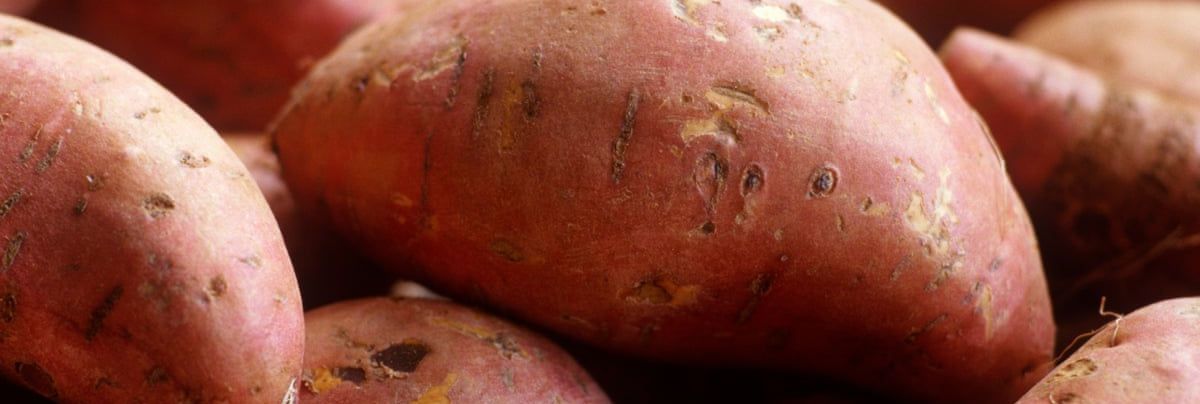THE POWER BEHIND THE SWEET POTATO
THE IDEAL CROP FOR NUTRITION, ECONOMIC DEVELOPMENT, AND CLIMATE
If you could focus on making a global impact by growing just one crop and improving its yield such that it would provide the world with starvation protection, improved health and economic benefits, you would want to focus on advancing the production and harvest of the sweet potato.
Sweet potatoes contain high-quality protein, similar to that found in eggs, and are packed with nutrients, including high levels of carotenoids (especially beta-carotene), copper, vitamins C and E, and fiber. What's more, sweet potatoes are much lower on the glycemic index scale than white potatoes. That means that even carbohydrate-sensitive people and diabetics can include these good carbs in their diets.
Unique Traits Make the Sweet Potato Invaluable
NUTRITIOUS VALUE
The sweet potato is actually two valuable food crops in one: the potato and its leaves. The orange-fleshed sweet potato itself is widely recognized as a nutritional powerhouse, deemed "The Mother Teresa of Food" for its nutritional impact. OFSPs can also prevent Vitamin A deficiency, which causes 600,000 child deaths annually. In addition, the sweet potato can help to prevent diarrhea. Diarrheal diseases kill 1.5 million children annually, causing nearly 20% of all children's deaths -- which is more than AIDS, malaria and measles combined. That's more than 2 million child deaths along with the devastating loss and pain for families that could be prevented annually.
PROPOGATION
Sweet potatoes, by nature, have the potential to propagate exponentially. First, potatoes themselves can be planted to sprout vines and can yield well over a dozen new potato plants in just a few weeks. During the period leading up to the potato harvest, the vines of the plants can be clipped and transferred, allowing for further propagation. Combined, the two phases of propagation enable farmers to significantly reduce their seed cost, while increasing their opportunity for income and food security.
FINANCIAL IMPACT
Sweet potatoes are considered a high-profit crop whose markets and uses are growing. Beyond being consumed as table potatoes and in pies, they've become popular as chips, fries, and flour. Sweet potatoes are also becoming a popular sweetener replacement for corn syrup, and they've even been used by Toyota to create plastic car parts!
DURABILITY
As a crop, the sweet potato is more tolerant of diseases, pests and high moisture levels than many other vegetables. Furthermore, sweet potatoes grow with little water and fertilizer. The sweet potato has been described as the #1 crop to grow to help feed the planet by 2050 a meet the anticipated significant population growth.
Understanding the OFSP's Core Benefits
THE ORANGE FLESH POTATO CAN PREVENT VITAMIN A DEFICIENCY THAT CAUSES 600,000 CHILD DEATHS ANNUALLY
SWEET POTATOES GROW IN A MANNER WHEREBY IT WILL PROPAGATE EXPONENTIALLY
SWEET POTATOES ARE MORE TOLERANT OF DISEASES, PESTS AND HIGH MOISTURE THAN MANY OTHER VEGETABLES
A HIGH-PROFIT CROP WHOSE MARKETS AND USES ARE GROWING
THE SWEET POTATO IS A DUEL CROP; BOTH POTATOES AND LEAVES CAN BE EATEN
WASTE FROM THE PRODUCTION OF THE SWEET POTATO CAN BE UTILIZED AS A BIOFEEDSTOCK
Global Institute For Transformation
Sign Up for Email Updates!
Global Impact Initiative - Form
Contact Information
Address:
29 Pinney Street, Unit #7, Ellington, CT, 06029

